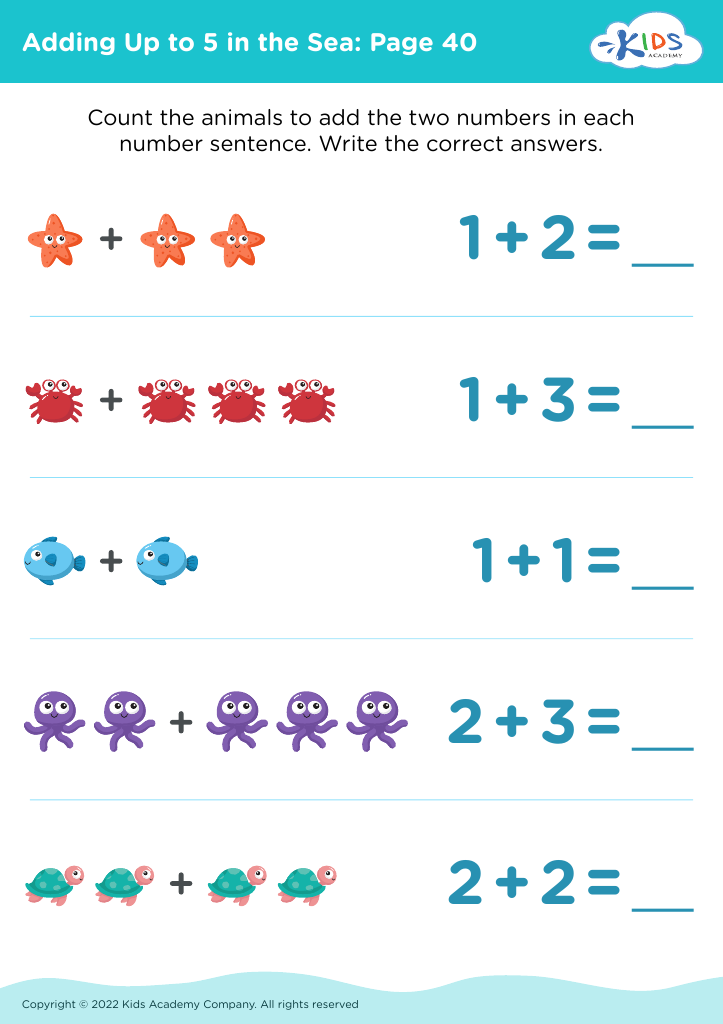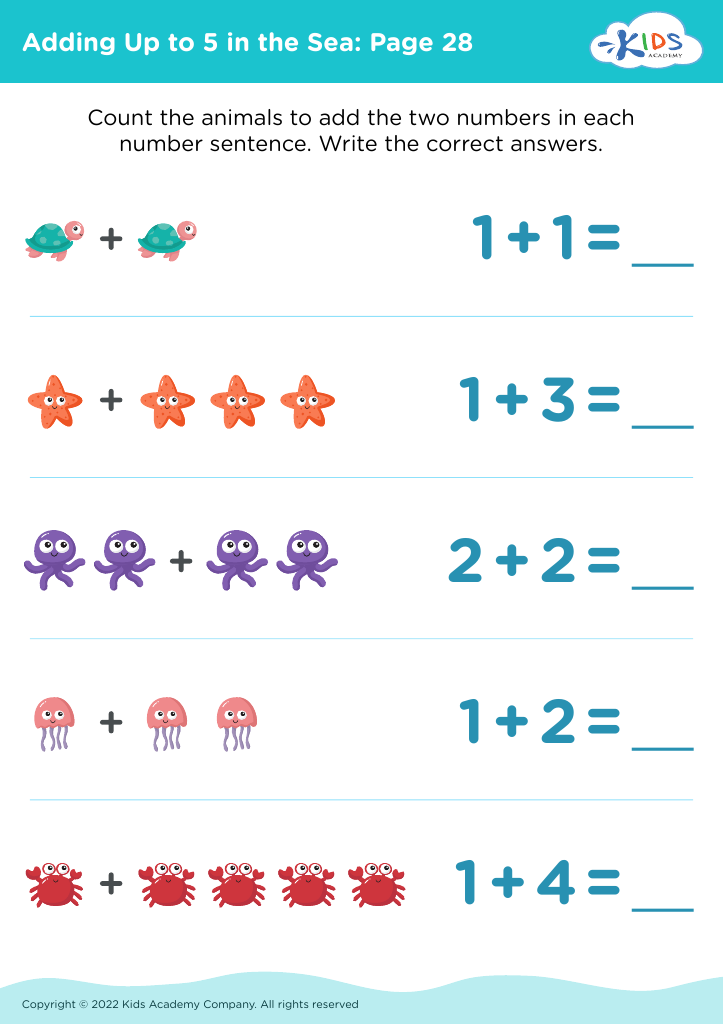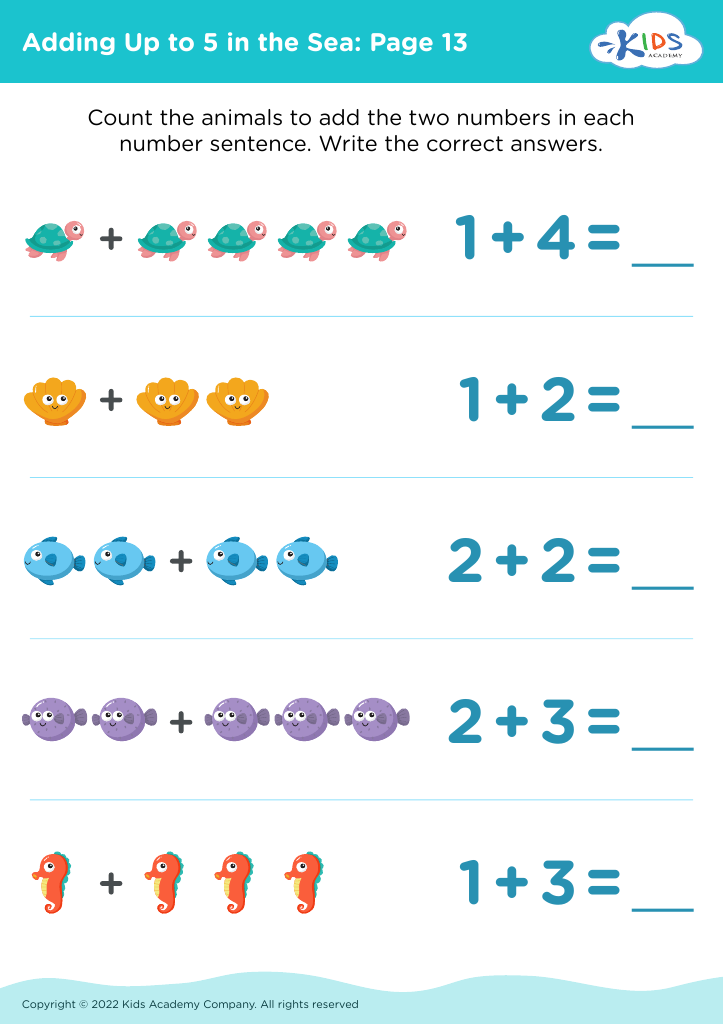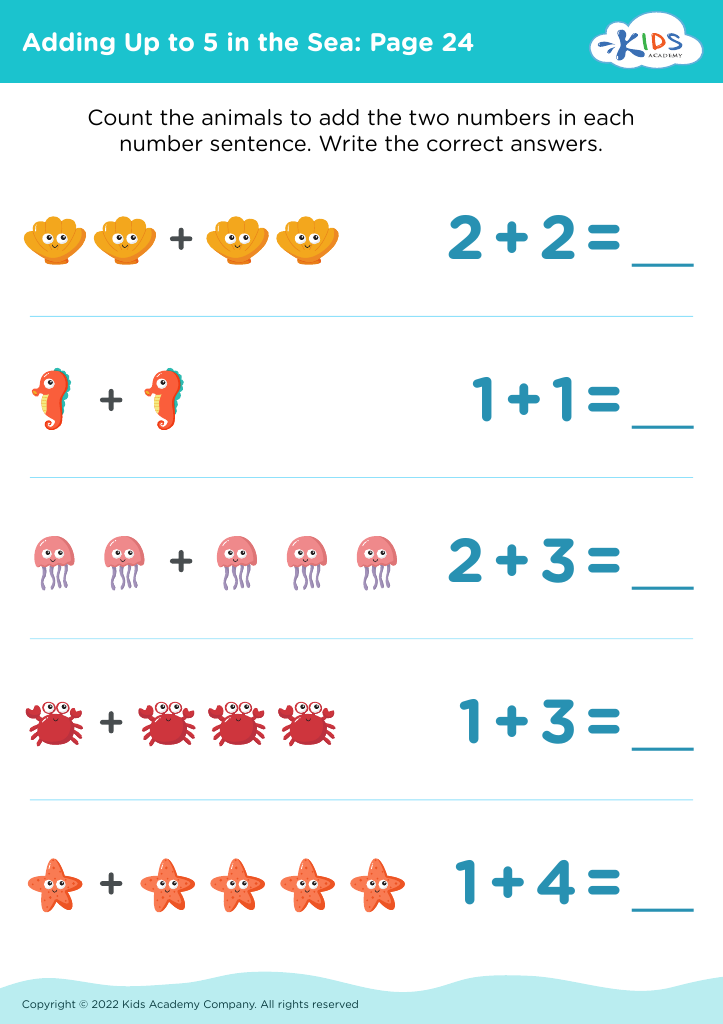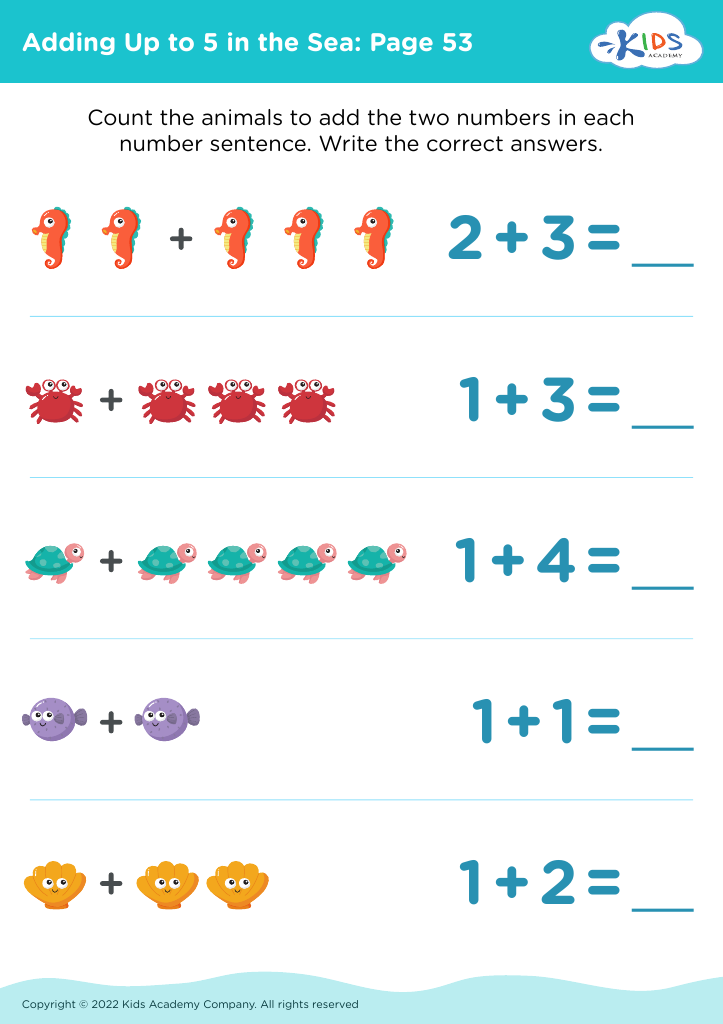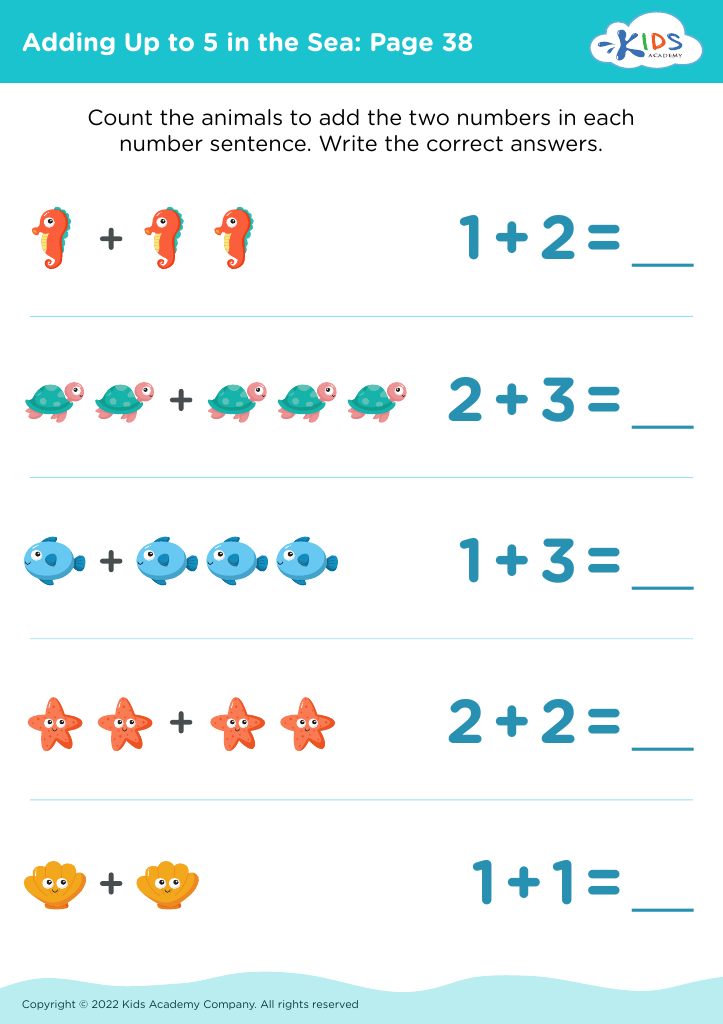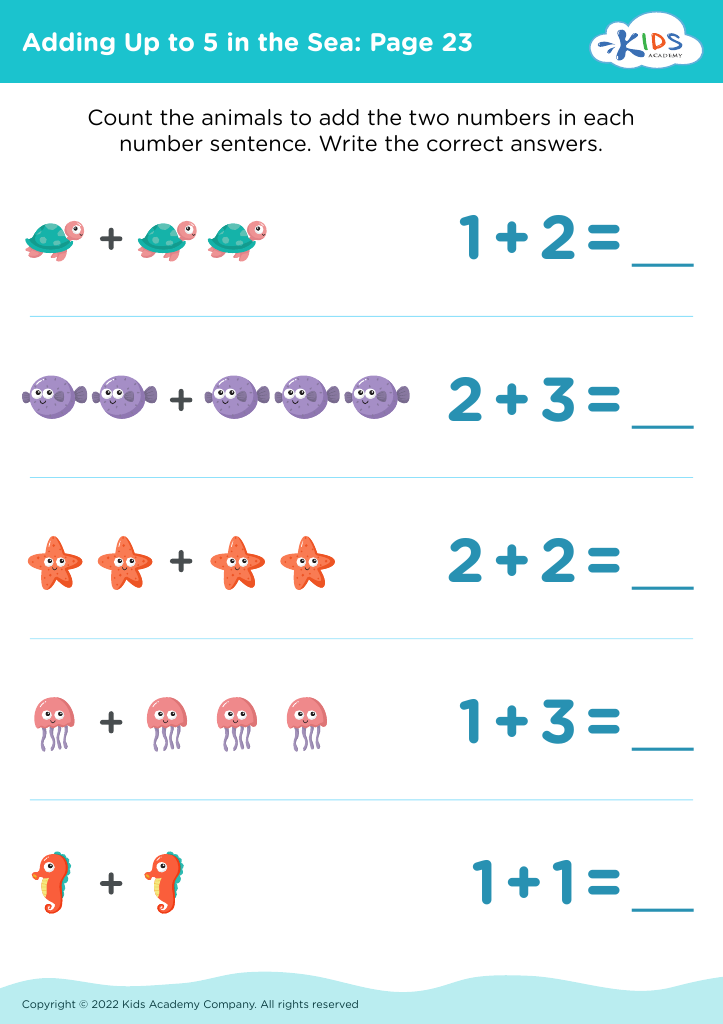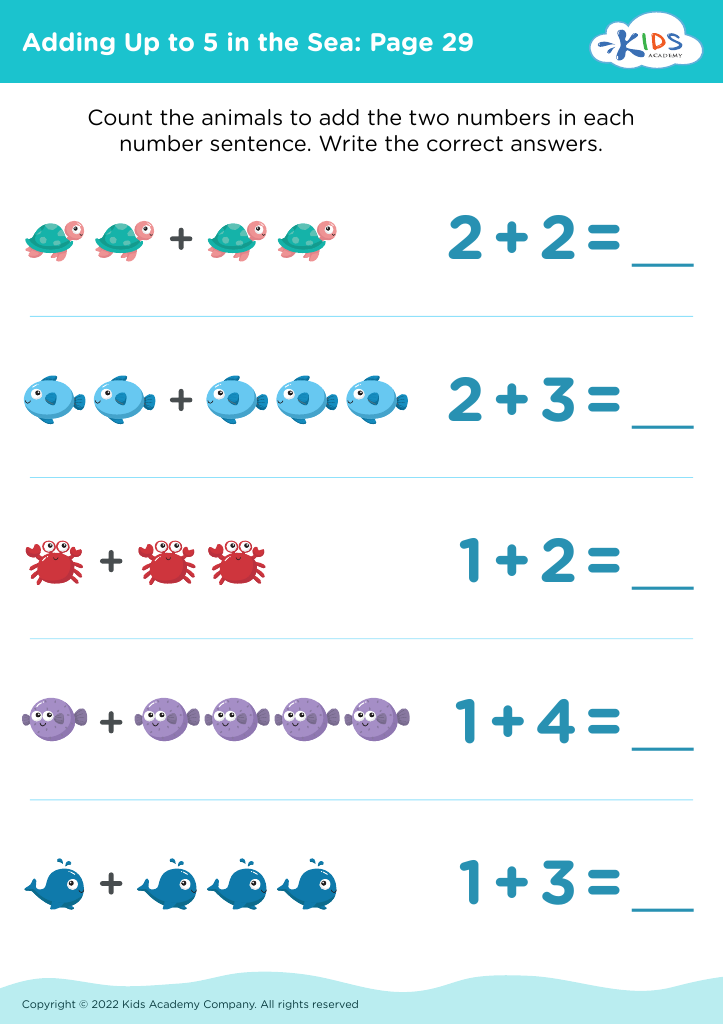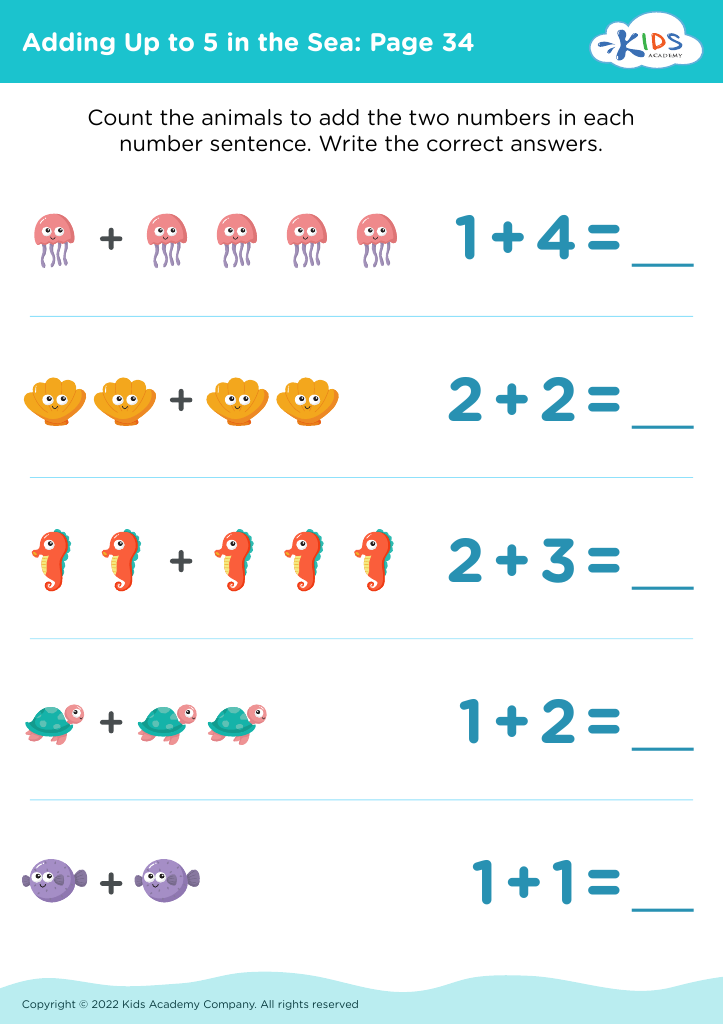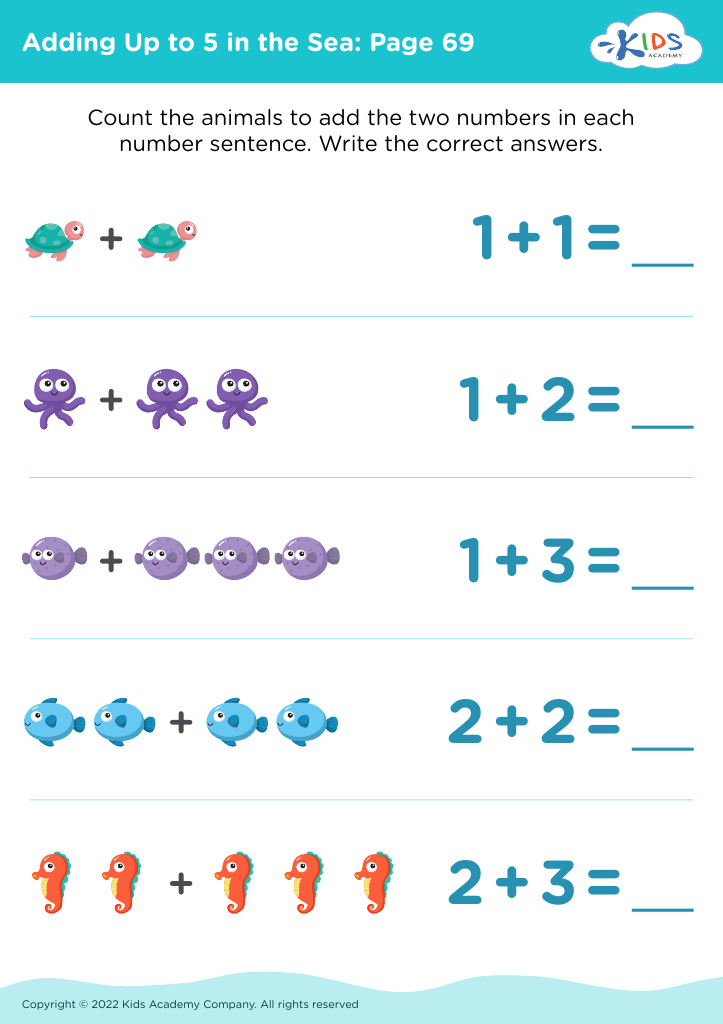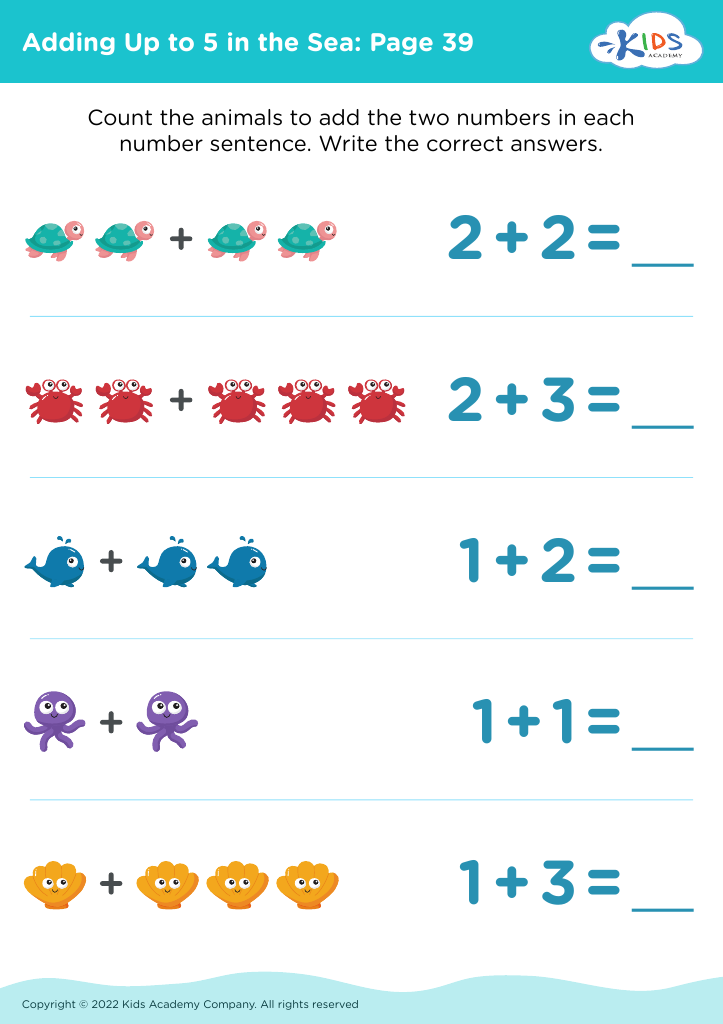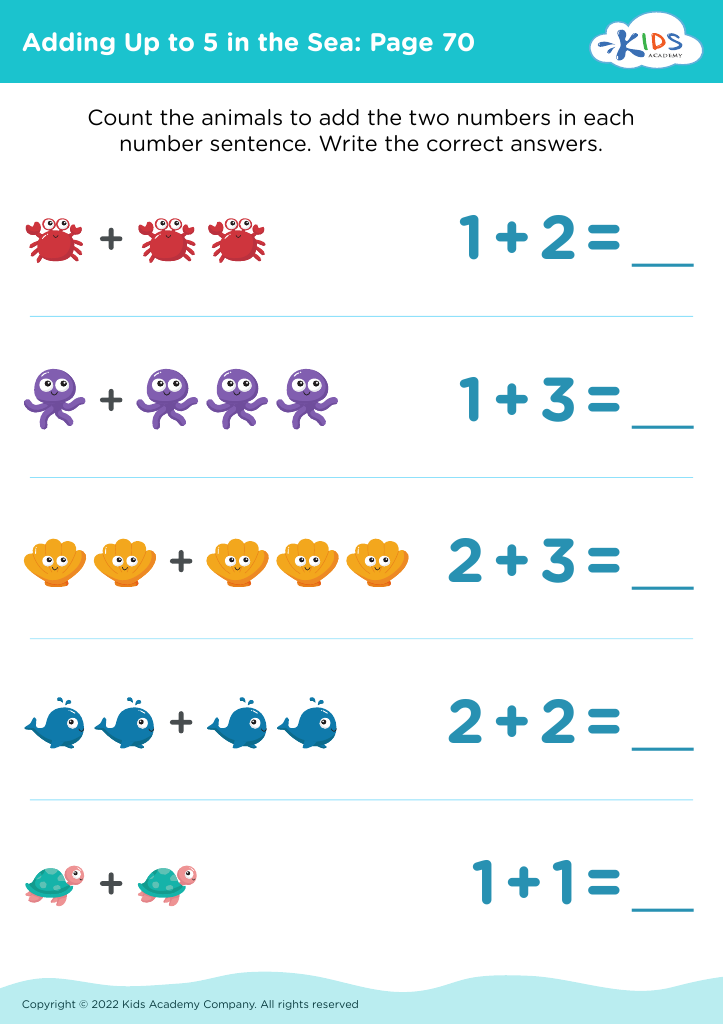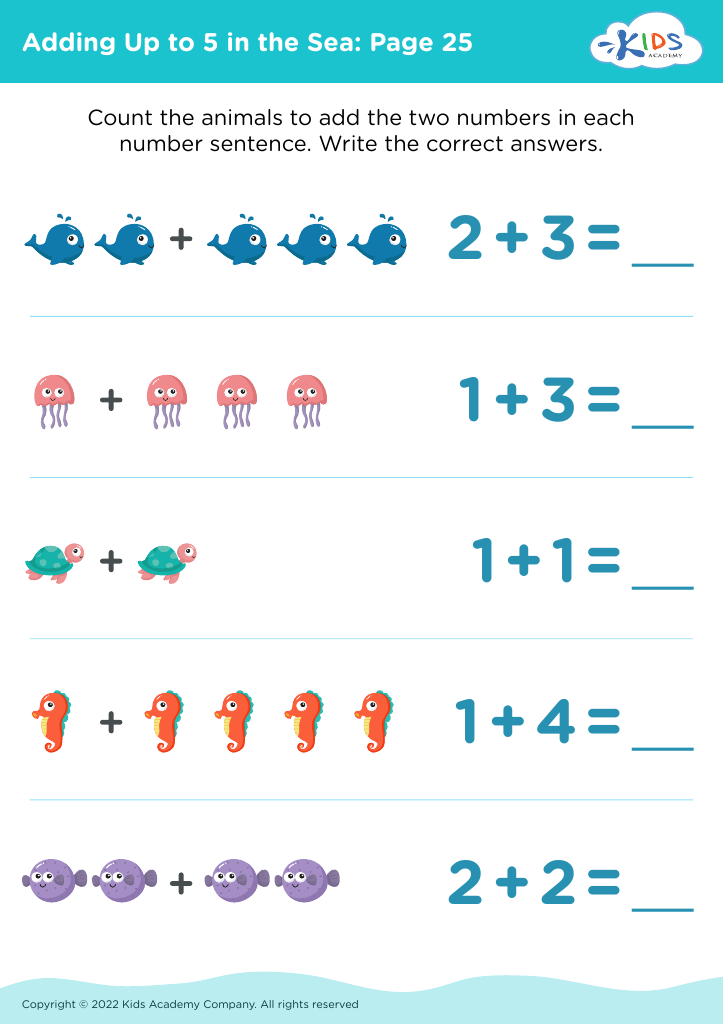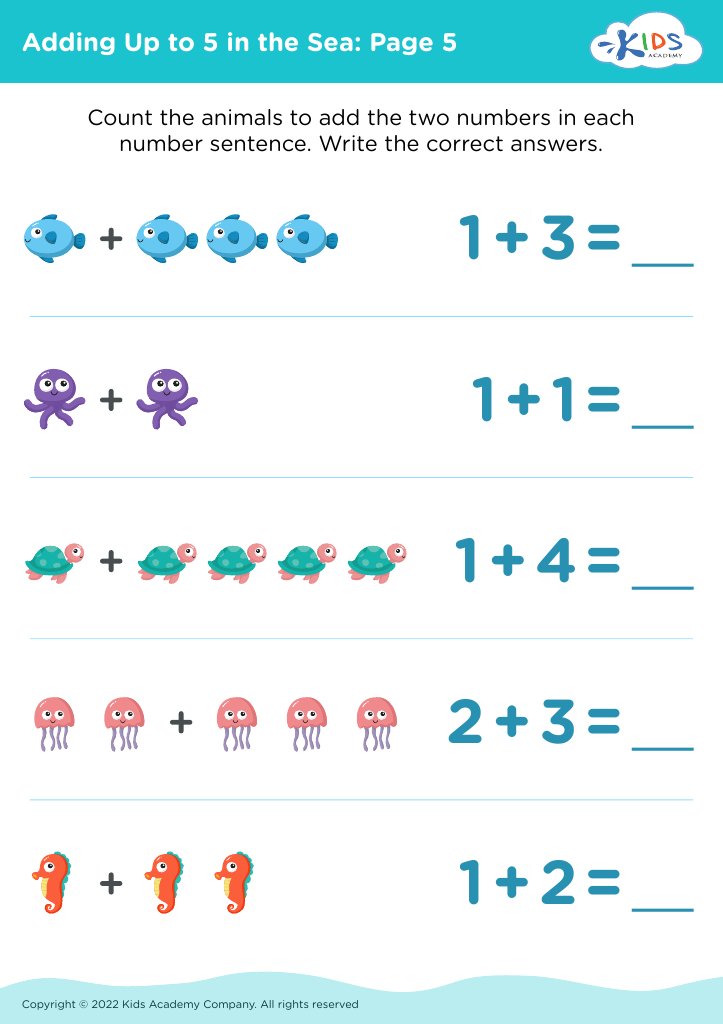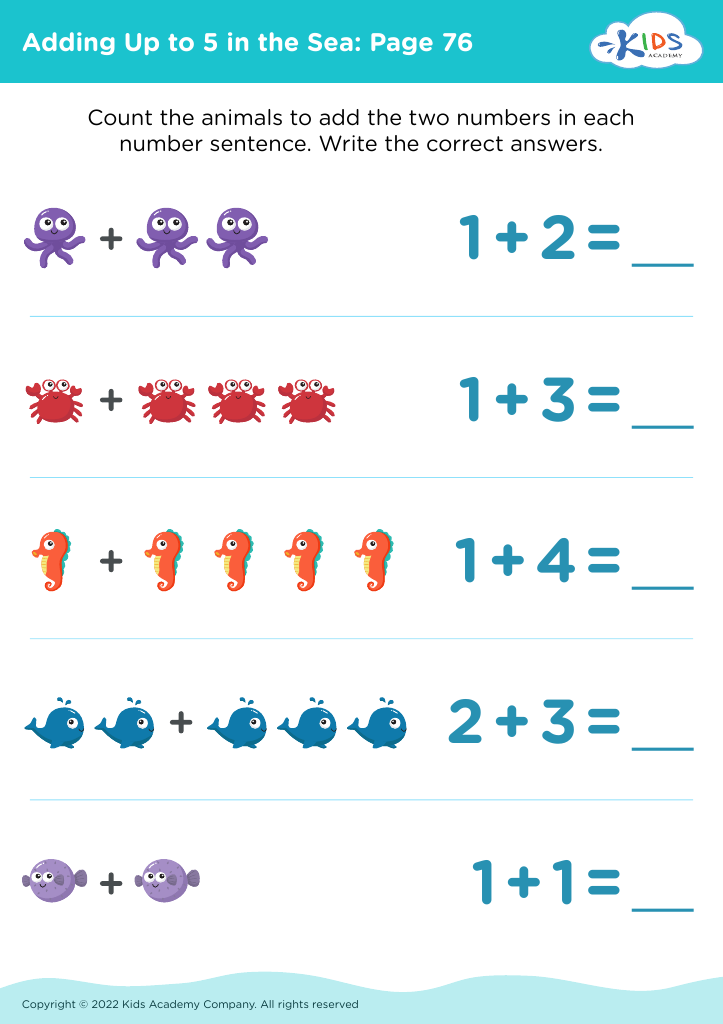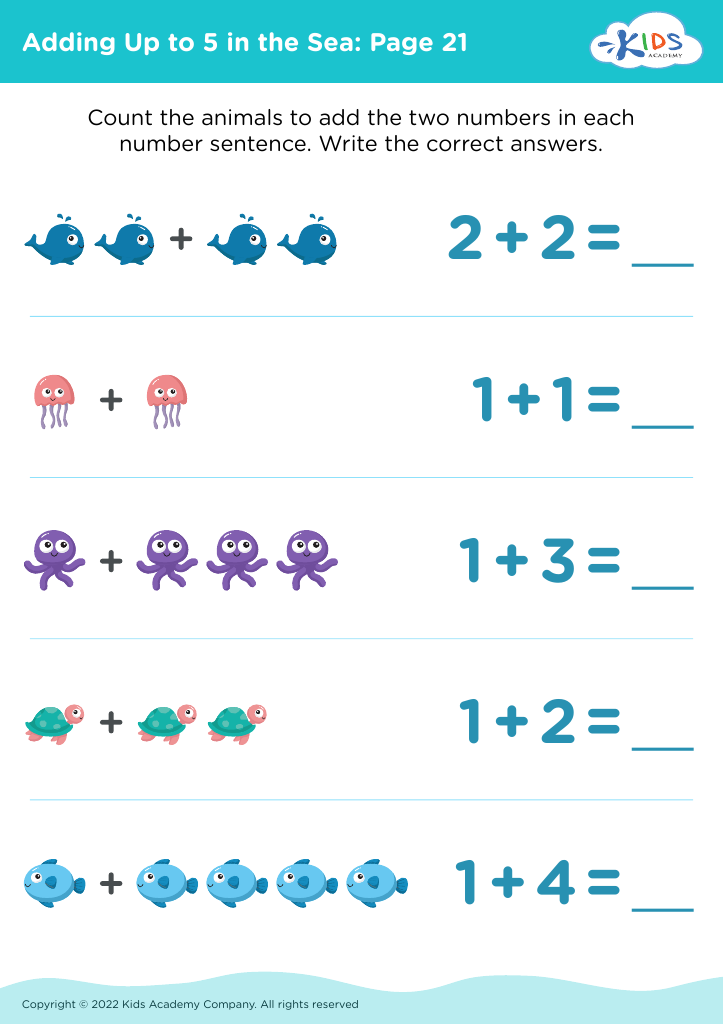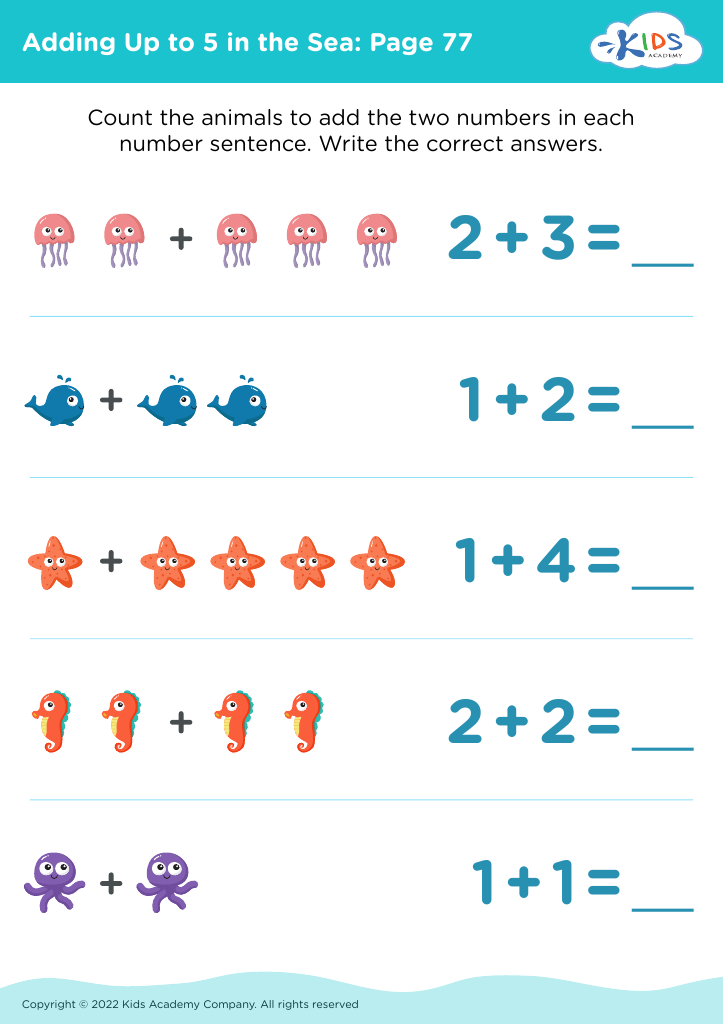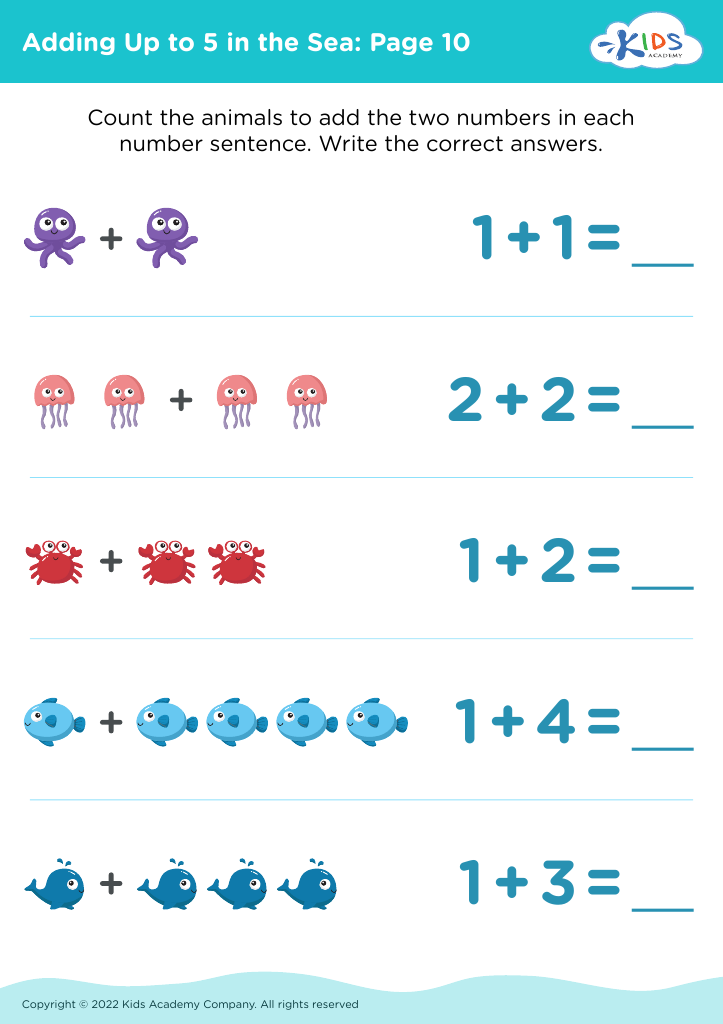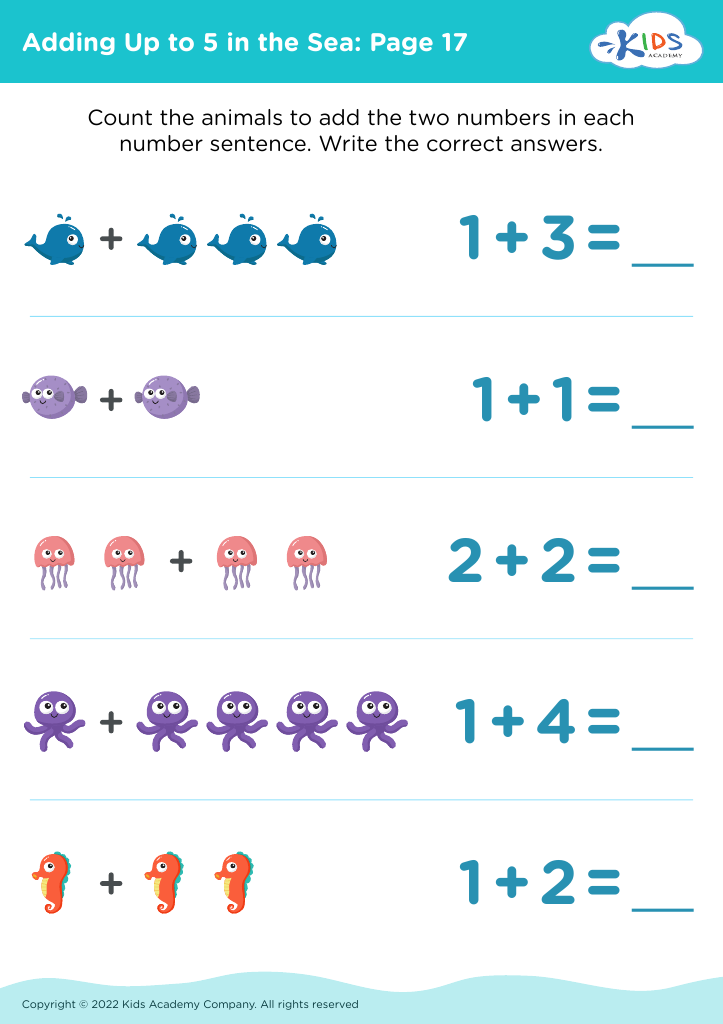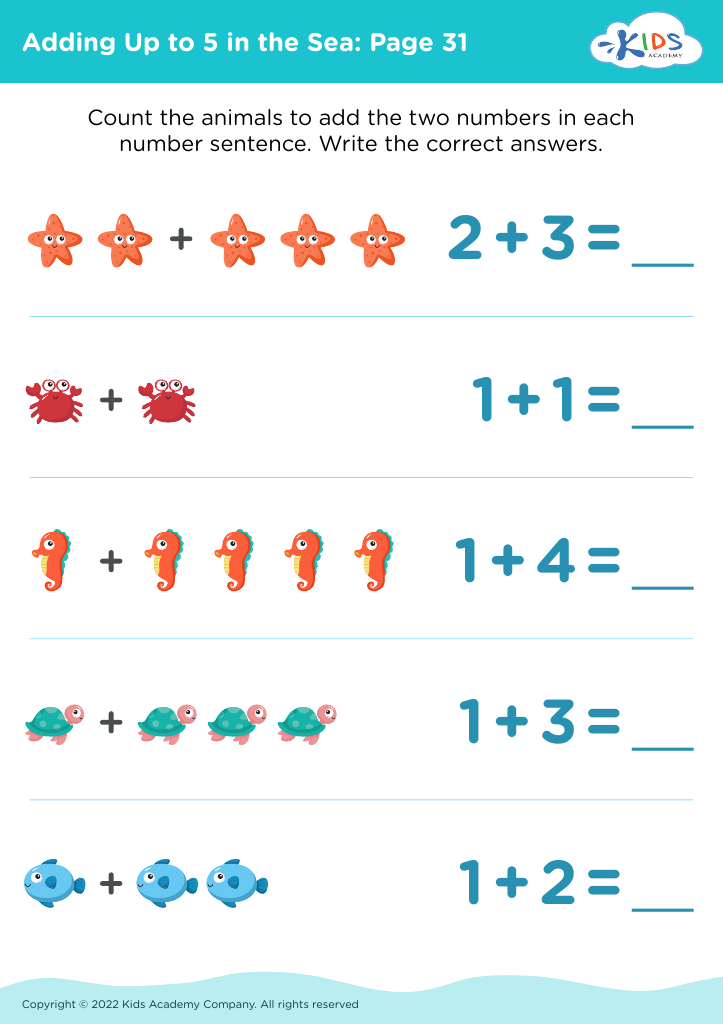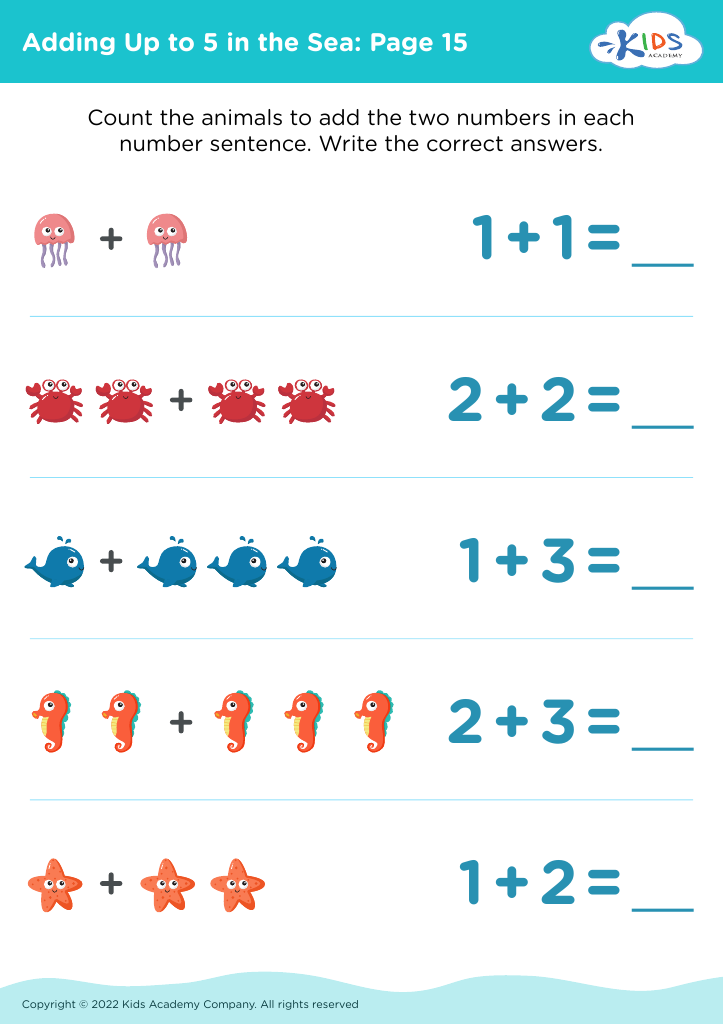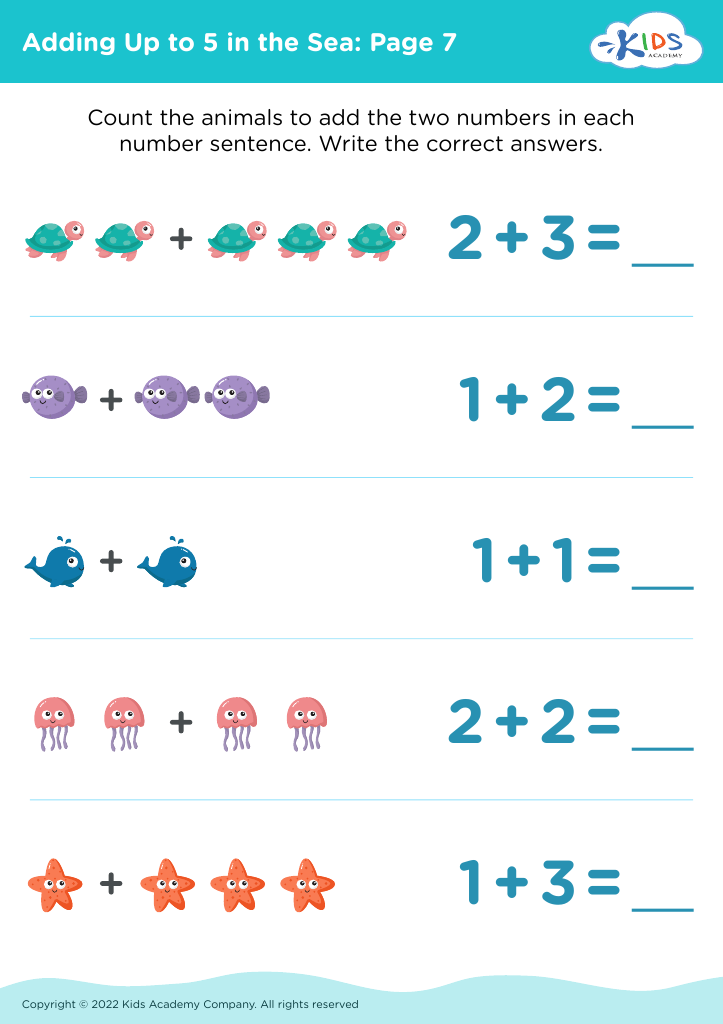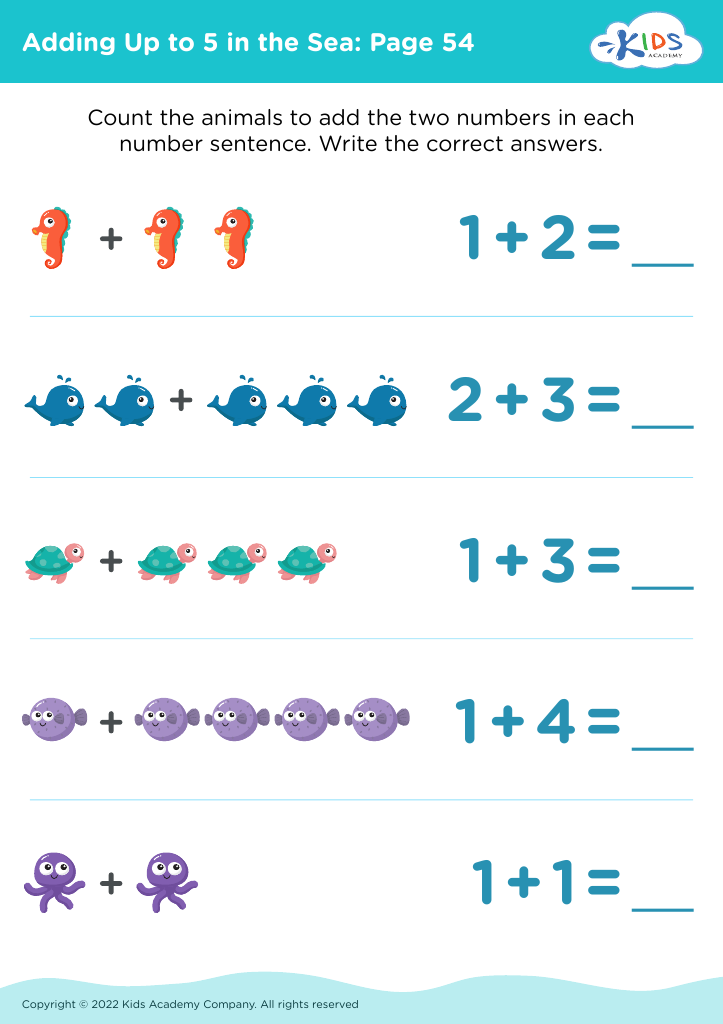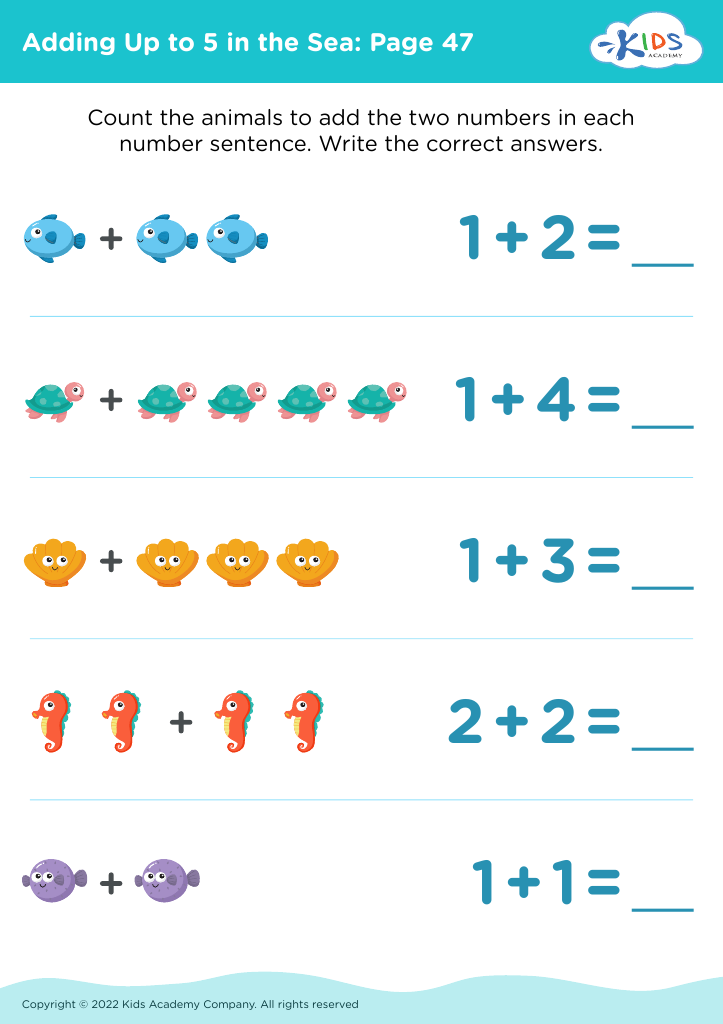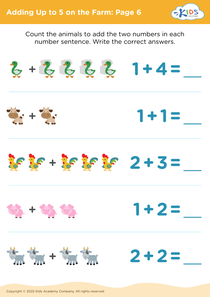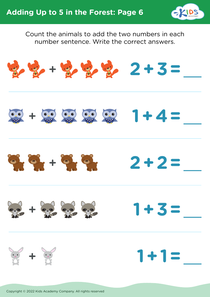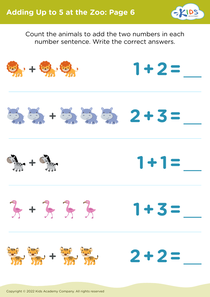Cognitive Development Adding in the Sea Worksheets for Ages 4-5
28 filtered results
-
From - To
Explore our "Cognitive Development Adding in the Sea Worksheets" designed specifically for children aged 4-5! These engaging and fun worksheets enhance early math skills through playful aquatic themes, promoting cognitive growth. Each worksheet helps young learners practice addition while stimulating critical thinking, problem-solving abilities, and recognizing numbers in a vibrant underwater context. With colorful illustrations of sea creatures, kids will enjoy their learning experience and develop a foundational understanding of math concepts. Perfect for parents and educators aiming to build essential skills in a playful manner, these worksheets foster a love for learning while mastering basic addition. Dive into learning fun today!
Cognitive development is a vital aspect of early childhood education, especially for children ages 4-5, as it lays the foundation for lifelong learning and intellectual growth. During this stage, children's brains experience rapid development, enhancing their capacity to think critically, solve problems, and understand complex concepts. Parents and teachers should prioritize cognitive development because it influences a child’s ability to engage with the world meaningfully.
Engaging in stimulating activities, such as storytelling, problem-solving games, and interactive play, can enhance children’s cognitive skills. These activities not only promote language and communication skills but also foster creativity and curiosity. Moreover, nurturing cognitive development positively impacts social skills, as children learn to cooperate and communicate with their peers.
Additionally, supporting cognitive growth helps address individual learning needs, allowing for early identification of challenges that may require intervention. By focusing on cognitive development in early education, parents and teachers can set the stage for academic success, boost self-esteem, and inspire a genuine love for learning. Investing in this critical area ensures that children are better prepared for future educational experiences, equipping them with essential skills to navigate academic and social landscapes effectively.
